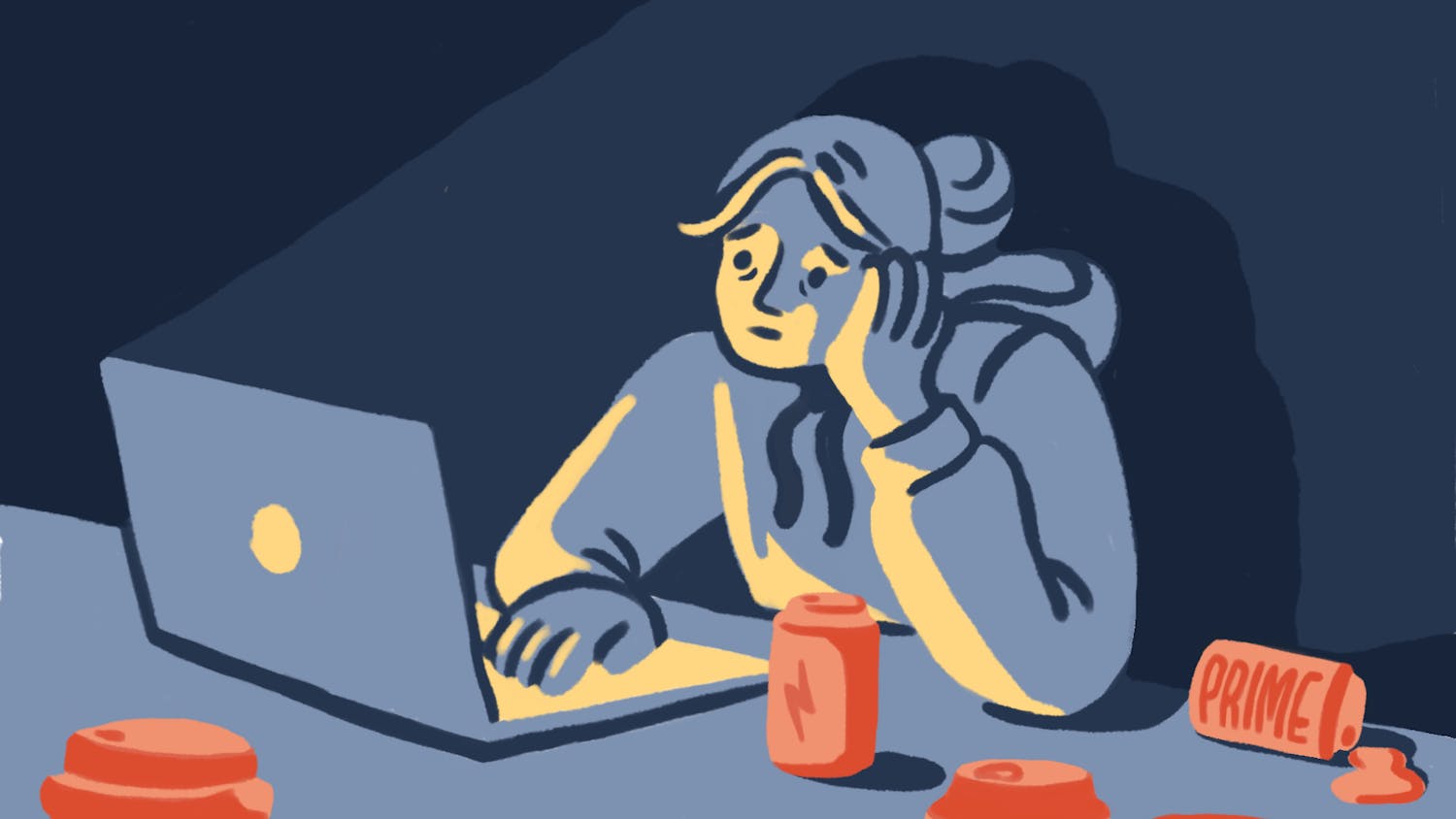A University celebration of women in science started with a tweet and culminated in a five-hour website “edit-a-thon” hosted Tuesday afternoonin the Pembroke Center.
Months ago, Maia Weinstock ’99 posted a message on Twitter directed at Anne Fausto-Sterling, a professor of biology and Weinstock’s former concentration adviser — an exchange Fausto-Sterling said sparked a reunion between the two women.
Fausto-Sterling, knowing Weinstock prolifically edited the free online encyclopedia Wikipedia, asked her former student to turn the tables and give her a “private lesson” on editing the site’s pages. Displeased by the encyclopedia’s small entry on science historian Margaret Rossiter — the article was a “stub,” a Wikipedia term for a short or incomplete piece — Fausto-Sterling set out to address the representation of female scientists in Wikipedia.
The two women’s project resulted in their organizing Tuesday’s event, which drew around 30 students and community members, as a part of the international Ada Lovelace Day, a celebration intended to boost the profile of women scientists.
The event’s namesake, Ada Lovelace, lived in England in the 19th century and is considered to be the first computer programmer, Weinstock said. Lovelace was close friends with the mathematician Charles Babbage, who designed the first device that could be considered a programmable computer, Weinstock said.
But it was Lovelace — not Babbage — who wrote the device’s first program, she added.
Lovelace is a “great example” of a woman who contributed to science or technology without receiving proper credit, Weinstock said. She added that she has celebrated Ada Lovelace Day since its inception in 2009.
Weinstock has made over 600 edits to Wikipedia, including those of lesser-known female scientists like Carolyn Porco, Joan Feynman and Chien-shing Wu, she said.
Joan Feynman, who studied the Northern Lights, was overshadowed by her brother, the famous physicist Richard Feynman, Weinstock said. Consequently, few people know she was also a scientist, “much less that she was a very accomplished scientist.”
Chien-Shiung Wu was a physicist who designed the experiment “to overturn a fundamental law of nature,” Weinstock said. Her male colleagues won a Nobel prize for the discovery, while Wu did not, Weinstock added.
The event, co-sponsored by the Pembroke Center, the Brown Science Center, Wikimedia New England and the Science and Technology Studies Program, also aimed to increase the number of women Wikipedia editors, Weinstock said, citing surveys showing that less than 20 percent of Wikipedia editors are women.
Weinstock kicked off the event with a lesson on Wikipedia editing, after which students filtered in and out of Pembroke Center 305, quietly creating and altering Wikipedia entries from their own computers based on a list the event’s organizers had posted.
Fausto-Sterling said she hopes training people to edit Wikipedia will create a “ripple effect,” in which people then train others, ultimately increasing the diversity of the site’s editors.
“Wikipedia is not very inviting all the time,” she said, recalling a cold email she once received from a more experienced editor. Only later, she said, did she discover the tone of the email did not reflect the editor’s real personality.
People might also be put off by the technical aspects of editing Wikipedia, which could also contribute to its small number of female editors, though “in reality learning Wikipedia” code does not take that much time, Fausto-Sterling said.
Eliza Cohen ’15, who attended the event, said she was drawn to it because it was hosted by Fausto-Sterling. She worked on expanding the page of Susan Gerbi, a professor of biology and biochemistry who previously served as president of the American Society for Cell Biology. Gerbi’s page was created earlier in the day as part of the event.
By the end of the event, editors had expanded over 20 articles and created 12 others, including pages about Ann McKee, a neuropathologist who was recently featured in a Frontline documentary about brain injuries from contact sports, and Virginia Grace, an archaeologist who won the Gold Medal for Archaeological Achievement in 1989.
ADVERTISEMENT




